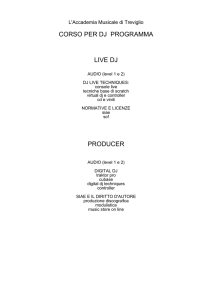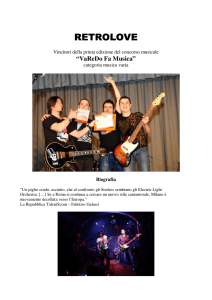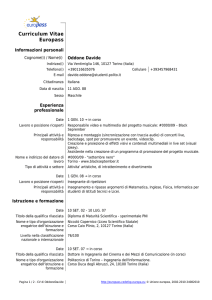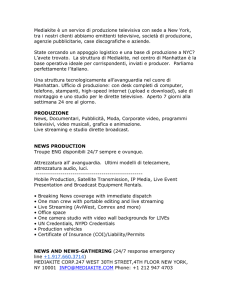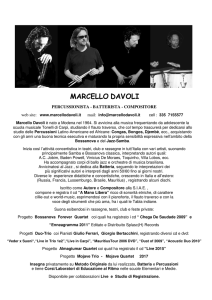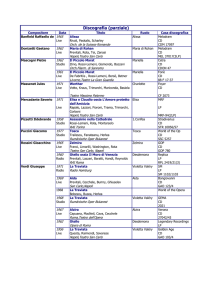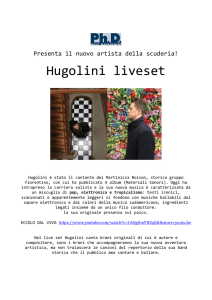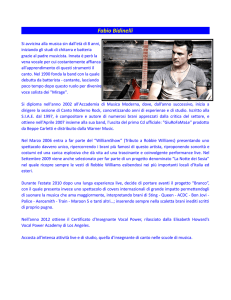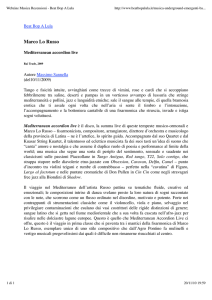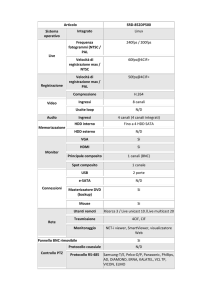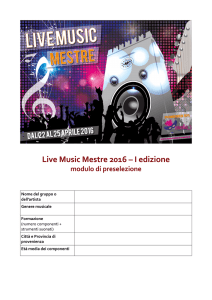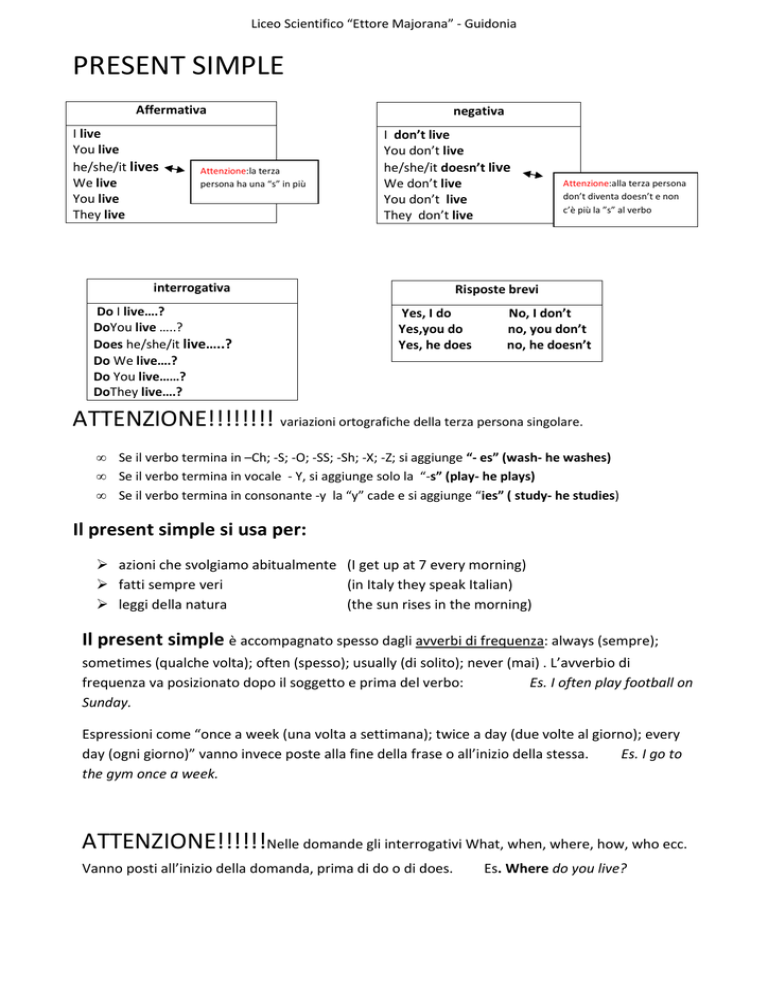
Liceo Scientifico “Ettore Majorana” - Guidonia
PRESENT SIMPLE
Affermativa
I live
You live
he/she/it lives
We live
You live
They live
Attenzione:la terza
persona ha una “s” in più
negativa
I don’t live
You don’t live
he/she/it doesn’t live
We don’t live
You don’t live
They don’t live
interrogativa
Do I live….?
DoYou live …..?
Does he/she/it live…..?
Do We live….?
Do You live……?
DoThey live….?
Attenzione:alla terza persona
don’t diventa doesn’t e non
c’è più la ”s” al verbo
Risposte brevi
Yes, I do
Yes,you do
Yes, he does
No, I don’t
no, you don’t
no, he doesn’t
ATTENZIONE!!!!!!!! variazioni ortografiche della terza persona singolare.
•
•
•
Se il verbo termina in –Ch; -S; -O; -SS; -Sh; -X; -Z; si aggiunge “- es” (wash- he washes)
Se il verbo termina in vocale - Y, si aggiunge solo la “-s” (play- he plays)
Se il verbo termina in consonante -y la “y” cade e si aggiunge “ies” ( study- he studies)
Il present simple si usa per:
azioni che svolgiamo abitualmente (I get up at 7 every morning)
fatti sempre veri
(in Italy they speak Italian)
leggi della natura
(the sun rises in the morning)
Il present simple è accompagnato spesso dagli avverbi di frequenza: always (sempre);
sometimes (qualche volta); often (spesso); usually (di solito); never (mai) . L’avverbio di
frequenza va posizionato dopo il soggetto e prima del verbo:
Es. I often play football on
Sunday.
Espressioni come “once a week (una volta a settimana); twice a day (due volte al giorno); every
day (ogni giorno)” vanno invece poste alla fine della frase o all’inizio della stessa.
Es. I go to
the gym once a week.
ATTENZIONE!!!!!!Nelle domande gli interrogativi What, when, where, how, who ecc.
Vanno posti all’inizio della domanda, prima di do o di does.
Es. Where do you live?
Liceo Scientifico “Ettore Majorana” - Guidonia
EXERCISES
Completa le domande sulle abitudini
quotidiane di una ragazza intervistata da
Daisy.
Ann descrive la sua famiglia. Completa le
frasi con il present simple dei verbi tra
parentesi.
1. What time do you get up ( you/get up)?
2. What time………………………………………(Your
parents/ get up)?
3. What………………………………..(you/eat/for
breakfast)?
4. ………………………………………….(you/ go / to
school /by car)?
5. What……………………………….(you/ do / after
school)?
6. ………………………………………..(you/ watch
TV/ in the evening)?
7. What time……………………………..(you/ go/
to bed)?
I live (live) with my parents in Oakley
We…………….(live) near the centre.
My father ………………(work) in London
My mother ………………….(teach)
French
5. My little brother……………….(do) judo
6. My big brother ……………..(play) tennis
7. I ……………..(go) to school in Oakley
1.
2.
3.
4.
Joel ha una vita ricca di impegni.
Completa le frasi con i verbi tra
parentesi.
Daniel vuole informazioni sul suo giocatore
preferito. Scrivi le informazioni da inviare al
sito Internet.
1. Joel gets up (get up) at six every
morning
2. He ……………..(go) jogging before
breakfast
3. He often………….(fly) to Rome for work
4. He usually………..(stay) with a friend.
5. He…………..(like) Italy
6. Joel never ……………….(spend) an
evening at home
7. He………………(see) his friends after
dinner or ……….(take) his girlfriend to
the cinema
Riordina le parole per formare frasi di
senso compiuto.
1. We usually go out on Saturday night
(we/ go out/usually/ on Saturday night)
2. ………………………………………………..(doesn’t/
always/wear/Sue/jeans)
3. ……………………………………………..(go to/
twice a week/ I /the swimming-pool)
4. …………………………………………….( I/
eat/usually/ fish)
5. ……………………………………………(never/ to
bed early/ Daisy/ goes)
1. How many hours/he /train/ every
day/?
how many hours does he train every day?
2. What/ he eat/ before the match?
…………………………………………………………….
3. He /want/ to play football all his life?
…………………………………………………………………
4. How/ he /spend /his free time?
………………………………………………………………….
5. How much/ he /earn (guadagna)?
……………………………………………………………….
6. He /play/ any other sports?
……………………………………………………………….
Traduci
1.
A che ora ti alzi la mattina? Mi alzo alle
sette
……………………………………………………………………
…………………………………………………………
2.
Dove abita la tua amica? Abita vicino
alla stazione
……………………………………………………………………
…………………………………………………
3.
Silvia non lavora per una socità
inglese. Lavora per una società americana
……………………………………………………………………
………………………………………………………………….

